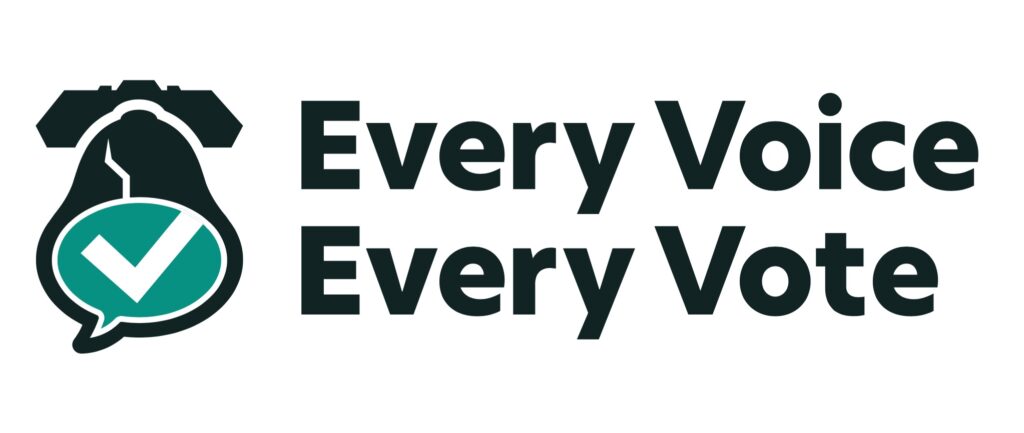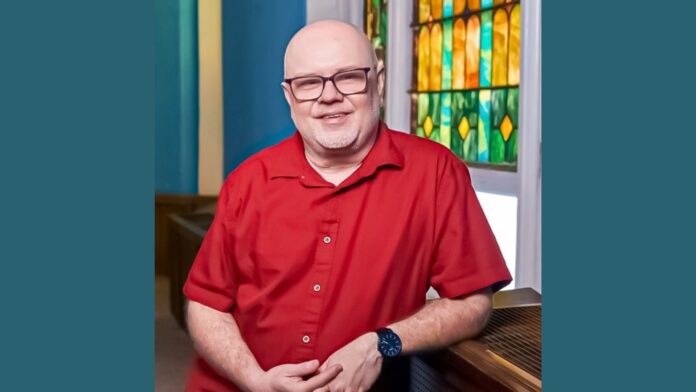After more than 30 years as CEO of Philadelphia FIGHT — an organization she helped to launch, Jane Shull announced she would retire in 2024. Her legacy is a community-centered health-care and advocacy organization that has constantly expanded to meet the needs of Philadelphians living with HIV/AIDS.
The organization, which began as a research initiative in its earliest days then expanded to provide services to people living with HIV/AIDS, is now a federally qualified health center — which means it can receive special funding and enhanced reimbursements for the care it provides to underserved populations.
“What I’m hoping to do is build on all of that,” said José Benitez, FIGHT’s new CEO, who promised that the organization will continue to evolve in the years to come. “I want to build on what’s already in place here, begin to expand it, widen the access that people have to us, and try to figure out how we ourselves can be more responsive to community needs.”
Benitez, who initially came to FIGHT six months ago as Director of Operations, said he’s also interested in stronger integration of mental-health services and in better utilizing the Project TEACH programs to meet additional community needs.
Before FIGHT, Benitez, who is a gay Latino, was already well-known for his leadership and service to those living with HIV/AIDS due to his 35 years in the field of social work. Originally from New York, Benitez came to Philly in the 1980s to attend school at Temple University.
“I had an uncle who I was really, really close with who passed away of AIDS,” said Benitez, who said the lack of information and services impacted his career trajectory. “Especially in the Latino community, we didn’t have a really good understanding of what HIV was or what AIDS was back then.”
“There weren’t a lot of programs he could access back then in terms of getting help with his health or even for recovery,” Benitez said about his uncle, who was a drug user and would have benefitted from rehabilitative services. “There wasn’t that much available once you were diagnosed…back in the mid ’80s, I think because people were fearful of it.”
This inspired him to dedicate his own work to the cause, starting out as one of the first case managers at Action AIDS — which is now Action Wellness. He was also a founding board member of Galaei (Gay and Lesbian AIDS Education Initiative), which was formed specifically to address the needs and experiences of the Latinx community.
“There weren’t a lot of services that were aimed towards people in the Latinx community, especially for people who just spoke Spanish — who are monolingual,” Benitez said, noting that the work there was unique, important and deeply resonated with him.
“It was really on-the-job training,” Benitez said about this early work, noting that his coursework didn’t include any classes or information about HIV/AIDS.
Although the organizations at the time were attempting to meet the needs of a broad population living with HIV/AIDS, the lack of access experienced by Benitez’s uncle and others in his community brought him to Prevention Point — an organization that was founded in response to the epidemic which provides harm-reduction counseling, syringe-exchange services, medical care, education and other support. He served as the organization’s CEO.
“I wanted to see if we could try to make a difference at Prevention Point,” he added, underlining that he’s proud of the organization’s accomplishments — which include setting up the city’s first shelter that wouldn’t require people who use drugs to stop using before they could be housed.
He said that this approach reduced an additional barrier to housing that this population typically faces — helping people stay safer and getting them linked to additional support sooner.
“It [showed] people dignity,” he underlined, explaining that the stigmas associated with drug use and of living with HIV/AIDS leads to unfair assumptions and mistreatment elsewhere. “Those are still huge challenges that we [as a society] still need to figure out how to face.”
Benitez noted that combatting the challenges in bettering access to HIV/AIDS prevention, treatment, and other services, government policies must be improved and education around what the various needs of the community are should be increased.
Although classes about HIV/AIDS weren’t offered when Benitez was finishing up his degree, he’s now an adjunct professor at Temple specializing in those topics. He teaches an undergraduate course that explores experiences of homophobia, discrimination, politics and the economy in connection to the public-health crisis.
“When I started, there were no drugs, no antivirals, nothing for people with HIV or AIDS to get help,” Benitez said, acknowledging the lack of governmental response “back in the day.”
“It’s really interesting to teach that,” he added. “It reminds me of those days when we had nothing to offer other than compassion.”
He believes the most important takeaway from the course is a deeper recognition of the way stigmatization can impact so many aspects of everyday life. Councilmember Rue Landau recently shared a reminder during a public hearing that at one point, municipal workers were not picking up trash from those living with HIV/AIDS. Benitez added that even people sharing a home sometimes kept a separate set of dishes and utensils that weren’t shared with HIV-positive roommates and loved ones.
“Having students understand that and process that — how stigma can be so devastating and so isolating, I think our students get a sense of how powerful that could be,” he explained.
Philadelphia was 1 of 48 counties across the United States to receive federal funding in 2019 under the Ending the HIV Epidemic: A Plan for America (EHE) initiative. The citywide plan to end the epidemic calls for 75% reduction in new HIV diagnoses by 2025 and a 90% reduction in new HIV diagnoses by 2030 through a variety of programs launched as part of the initiative.
It’s a bit of a full-circle moment for Benitez.
“To think about the end of AIDS, it’s remarkable,” he said. “The fact that we have an opportunity to get there is pretty amazing, right?”
But that doesn’t mean HIV/AIDS is over — a misconception he said younger people sometimes don’t understand. And stigma is a major problem in attempts to combat the epidemic.
“There’s been progress, but there’s certainly still a stigma that still exists around HIV,” he said, emphasizing that this stigma is exacerbated for those living at the intersection of additional marginalized identities and experiences.
“Stigma still plays a large role in how we respond to a community, and we have to be really aware of that,” he added, underlining the need to be more mindful in the approach taken when talking about specific issues. “We have to have more active conversations about stigma.”


